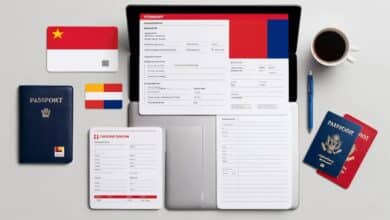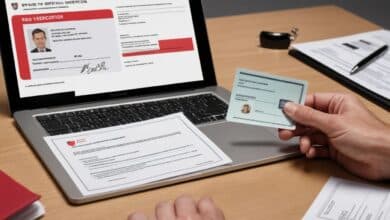Marriage Abroad in the Netherlands: civil ceremony steps, required documents and how to register your marriage properly
Dutch citizens have the option to hold their civil ceremony in another country.
This process involves understanding both Dutch law and the regulations of the chosen location.
Certain fundamental rules apply to all Dutch nationals, no matter where they decide to get married. Both individuals must be at least 18 years old. They must also be single and not closely related.
The specific documents needed will depend entirely on the destination. Couples must contact local authorities in that nation for precise requirements.
This guide provides essential information for navigating the entire process. It covers eligibility, required paperwork, and final registration steps. The goal is to ensure the union is legally recognized back in the Netherlands.
Marriage Abroad Netherlands: Essential Steps and Requirements
Before planning their union overseas, Dutch nationals must understand the fundamental eligibility criteria that apply regardless of location. These basic requirements ensure the legal validity of the ceremony.
Eligibility, Age, and Marital Capacity
Both individuals must be at least 18 years old to have their union recognized. A partner must not already be married or in a registered partnership. Those under guardianship need special permission.
Close family relationships are prohibited. This includes parents and children, grandparents and grandchildren, and siblings. These rules protect the legal capacity of both parties.
Country-Specific Guidelines and Municipal Rules
Each destination has unique regulations. Dutch nationals should contact local authorities to learn specific country requirements. They must ask if they can get married there as a Dutch citizen.
Different nations have varying procedures and document needs. Researching these details early prevents complications. This ensures the process follows both Dutch law and local regulations.
Civil Ceremony Procedures and Required Documents
Document collection forms the foundation for legally recognized ceremonies overseas. The specific documents need vary significantly depending on the destination country and individual circumstances.
Gathering Certificates and Proof of Unmarried Status
Standard requirements typically include birth certificates and proof of marital status. Foreign authorities determine which specific documents they require for the ceremony.
A certificate of unmarried status serves as crucial evidence that neither party has existing commitments. This document needs careful preparation and often requires legalization.
Individuals who previously lived outside their home country may face additional requirements. The registrar might request documentation to verify their civil status history.
Personal Declarations and Additional Legal Documents
Personal declarations represent another common requirement in many countries. Non-nationals often need to complete specific declaration forms.
Dutch citizens living internationally can contact municipalities with RNI-desks for assistance. These offices help obtain necessary certificates when planning ceremonies.
The application process for certificates typically involves the last place of residence. Early communication with foreign authorities helps clarify which documents need preparation.
Each situation requires tailored document preparation. Couples should verify requirements directly with the officiating authority to ensure compliance.
Legalizing and Registering Your Marriage in the Netherlands
Properly documenting a union that took place in a different country is essential for its validity within the Dutch system. The required steps depend on whether the couple lives in the Netherlands or elsewhere.
Municipal Registration Process and Necessary Steps
Couples who live in the Netherlands must register their new status with their local municipality. This is a mandatory step. They need to present the original marriage certificate from the other country.
The municipality then informs various government bodies about the change. However, some organizations, like tax authorities, may need direct contact. This update can affect taxes and benefits.
Legalization of Foreign Marriage Certificates
Often, the foreign certificate must be legalized before the municipality will accept it. This process verifies the document’s authenticity.
The legalization typically involves two key steps:
- Authentication by authorities in the country where the event occurred.
- Further legalization by the Dutch diplomatic mission in that same place.
For Dutch citizens living outside the Netherlands, registration at a local municipality is not possible. Instead, they can opt to have their foreign document converted into a Dutch record through the municipality of The Hague.
While optional, this conversion is highly practical. It allows individuals to easily request an official extract or certified copy whenever needed for administrative purposes.
Considerations for Dual Nationality and Partner Eligibility
The combination of residence locations and citizenship statuses creates specific eligibility scenarios for partners. Different rules apply depending on where each person lives and their nationality.
Residence Permit Requirements and Non-Dutch Declarations
When one partner lives in the Netherlands and the other lives outside, requirements vary. If one person is Dutch and the other is not, the non-Dutch partner needs a personal declaration. No residence permit is required since they live abroad.
If neither partner is Dutch, both need personal declarations. The person living in the Netherlands requires a residence permit unless they are EU/EEA citizens.
When both partners live in the Netherlands, non-Dutch nationals need personal declarations. They also require residence permits unless they are EU/EEA citizens. Both Dutch and non-Dutch nationals can enter a registered partnership.
For partners living outside the Netherlands, a non-Dutch partner needs a personal declaration. No residence permit is required. If neither partner is Dutch, the ceremony in the Netherlands is not applicable.
Non-Dutch nationals must complete personal declarations when planning to enter a registered partnership. The Immigration and Naturalisation Service (IND) checks residence status. The Aliens Police investigates to ensure genuine relationships.
Individuals with dual nationality must meet Dutch law requirements. They can proceed even if another country prohibits it. However, international recognition may be difficult.
Navigating Additional International Marriage Considerations
International ceremonies require careful attention to declarations and certificates from local authorities. Couples must verify they can legally enter registered partnership arrangements in their chosen location.
Foreign authorities in each country determine specific requirements. They may request a declaration of intent to marry enter registered status. Dutch embassies can issue these documents when needed.
Declarations of Intent and Consent from Foreign Authorities
Some nations require proof of capacity to enter registered partnership. This often means providing certificates of unmarried status. The foreign authority conducting the ceremony specifies which document is necessary.
Dutch citizens living outside the Netherlands can contact special municipalities for assistance. These RNI-desk locations help with documentation needs:
- Amsterdam
- Rotterdam
- The Hague
- Utrecht
- 14 other cities nationwide
Early communication with authorities in the destination country is essential. This ensures all requirements are met before the ceremony takes place. Proper preparation helps avoid legal complications later.
Each nation has unique procedures for partnerships. Researching these details early ensures smooth proceedings. Couples should confirm all steps with local officials.
Conclusion
The journey toward a valid international union involves mastering both domestic regulations and foreign procedures. This guide has provided essential information to help couples navigate this complex process successfully.
Proper documentation forms the foundation of any legally recognized partnership. Birth certificates, proof of unmarried status, and personal declarations are typically required. Each situation demands specific paperwork.
Registration processes vary depending on residence. Those living in the Netherlands must work with their local municipality. Individuals who live outside the country have different requirements.
Different combinations of nationality and residence create unique legal situations. Couples should assess their specific circumstances carefully. Early contact with relevant authorities ensures all requirements are met.
While the process involves multiple steps, careful planning makes it manageable. Understanding how partnership status affects taxes and benefits maintains compliance with Dutch law.
For more information, explore the official visa website mentioned in this article:
You will be redirected to another website
FAQ
What documents are needed to prove unmarried status for a partnership in the Netherlands?
Individuals must provide an official declaration or certificate from their home country’s authorities confirming they are free to marry. This document often requires legalization to be valid for use by Dutch municipalities.
How does a Dutch national register a union that took place outside the Netherlands?
They can apply to have their foreign certificate recorded in the Basisregistratie Personen (BRP). This usually involves submitting a legalized copy of the document and, if necessary, a certified translation to the local municipality.
Are there different requirements if one partner is not a citizen of the Netherlands?
Yes. The non-Dutch partner must typically provide additional documents, such as a valid residence permit, a passport, and proof of their legal capacity to enter a partnership according to their national law.
What is the process for legalizing a foreign marriage certificate for use in the Netherlands?
The process, called apostille or legalization, involves getting a series of stamps from authorities in the country where the event occurred. This certifies the document’s authenticity so Dutch officials can accept it.
Can a couple enter a registered partnership if they live outside the country?
The possibility depends on the local law of the place where they reside. They should contact the relevant authorities in that country to understand the specific steps and required declarations for their situation.
What information must be included in a declaration of intent to marry or form a partnership?
This legal statement typically includes full personal details, confirmation of voluntary consent, and a declaration that there are no known legal impediments to the union, as required by Dutch regulations.
Published on: 17 de October de 2025







